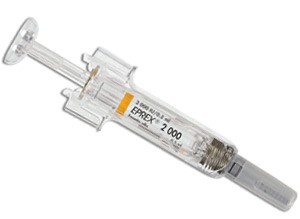Governing body to join WADA and Spanish anti-doping agency in fight to secure handover of blood bags
 Responding to the April 30th Operacion Puerto ruling which saw Spanish judge Patricia Santamaria decide not to hand over blood bags to anti-doping bodies, the UCI has said today that it plans to take action over the matter.
Responding to the April 30th Operacion Puerto ruling which saw Spanish judge Patricia Santamaria decide not to hand over blood bags to anti-doping bodies, the UCI has said today that it plans to take action over the matter.
Issuing a statement, it made clear it plans to push for the handing over of the evidence in question. “The UCI can confirm that it will appeal the decision of the Madrid court of 29 April not to release to the UCI and other anti-doping organisations the more than 200 bags of blood and other evidence gathered in police raids in 2006, which were presented in the trial of Spanish doctor Eufemiano Fuentes.”
Fuentes and others were involved in doping cyclists and other athletes, and were snared when Spanish police carried out raids in May 2006.
In addition to large quantities of banned substances, over 200 blood bags were seized . These related to a number of different sports, but cyclists were the only ones who were identified.
Jan Ullrich, Alejandro Valverde and Ivan Basso were amongst those implicated. Ullrich retired, while Valverde and Basso both faced bans from the sport.
The World Anti Doping Agency and the Spanish equivalent are both keen to try to get Santamaria to change her stance. On May 1st Spanish anti-doping agency director general Ana Muñoz made clear that she would persist in that effort.
“We have 10 days to appeal that decision,” she said in a press conference. “We will use all channels available to pursue this and to identify the names of the athletes involved. Operation Puerto is not over.
“I am going to ask the judge for any evidence of whatever nature, including the bags, so that these acts which she herself considers to be infractions can be judged by the competent authorities.”
This stance was echoed by WADA. On April 30th its director general David Howman described the decision to order the destruction of the blood bags as being ‘particularly disappointing and unsatisfactory for WADA, and the whole anti-doping community.’
He said WADA was reviewing the decision and considering a possible appeal, noting that the deadline it faces is May 17th.
“WADA is keen to try to determine who else was a Fuentes client, and to give them sporting bans if possible,” said Howman.
Now, via today’s statement, it seems the UCI also echoes those sentiments. At the time of the Puerto raids UCI President Pat McQuaid criticised the fact that only cyclists had been identified, while Fuentes’ clients from other sports essentially got off without punishment.
No anti-doping laws were in place in Spain at the time, and so Fuentes and others were prosecuted under Article 361 of the Spanish criminal code, referring to crimes against public health.
On April 30th Santamaria ruled that Fuentes and Ignacio Labarta were guilty, but gave them minimal sentences of one year and four months respectively in prison. These were token gestures as in Spain, sentences of less than two years do not result in any prison time unless those concerned have previously broken the law.
In addition Santamaria banned Fuentes from working as a sports doctor for just four years, although it is thought that he can continue other medical practices unhindered. He was also given a small fine.